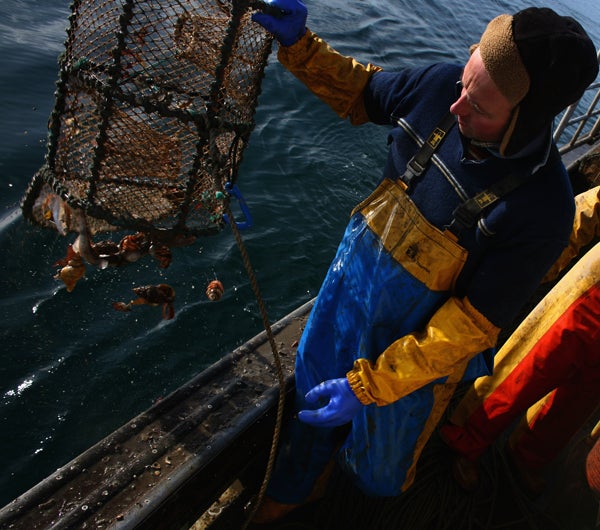Apprentice: Sea fishing

Your support helps us to tell the story
From reproductive rights to climate change to Big Tech, The Independent is on the ground when the story is developing. Whether it's investigating the financials of Elon Musk's pro-Trump PAC or producing our latest documentary, 'The A Word', which shines a light on the American women fighting for reproductive rights, we know how important it is to parse out the facts from the messaging.
At such a critical moment in US history, we need reporters on the ground. Your donation allows us to keep sending journalists to speak to both sides of the story.
The Independent is trusted by Americans across the entire political spectrum. And unlike many other quality news outlets, we choose not to lock Americans out of our reporting and analysis with paywalls. We believe quality journalism should be available to everyone, paid for by those who can afford it.
Your support makes all the difference.Having drifted for a few years after leaving school, Kris Spearing, 21, is studying for an NVQ level two in sea fishing at Whitby & District Fishing Industry Training School
"On a typical day, I get up at 3am, and I'm at my boat for 4am. It's a potting boat – which catches lobster and crab – and it's about 3m long, holding four people. We're at sea for 4.15am, cutting up bait and heading down towards Scarborough. We haul the pots up from the sea bed about 50 at a time, then clean them, rebait them and shoot them back into the sea. The pots weigh about three stone each. The most I've ever hauled in a day is 1,050, but there will be 2,000 in lobster season, and I'll be working even longer hours; currently we finish at 6pm.
"At the moment I do all that for free (my school pays for my accommodation), but in the long term the pay is good. Fishermen are self-employed, so you split the catch between you. The deck hand on my boat can earn £1,800 a week in high season; for him, £500 a week is bad money, but none of my friends in other professions get as much as £500 a week.
"I saw the Whitby Fishing School in a Connexions brochure in Bedford, where I'm from. It stood out to me: I'd been in the sea cadets and could remember seeing some trawlers and saying to my friend, “I fancy that”. Sending the application form off, I realised it was the first thing I'd ever really wanted.
"The school make you do eight weeks of college work before you even see a boat; retired fishermen come in to explain everything. I asked to be on a potting boat because I’d heard they were the best. They’re also the hardest work, but that’s how you learn.
"I started in January and I’ll be qualified when I’ve done 2,000 hours at sea, which should be around September. I've been offered a job on this boat once I'm done so I don’t want to hang about. There's really nothing like seeing a pot full of lobsters come up. We don't eat them, though: lobsters are pound signs!"
- For more information visit www.whitbyfishingschool.co.uk and www.sea-fishing.org
Join our commenting forum
Join thought-provoking conversations, follow other Independent readers and see their replies
Comments